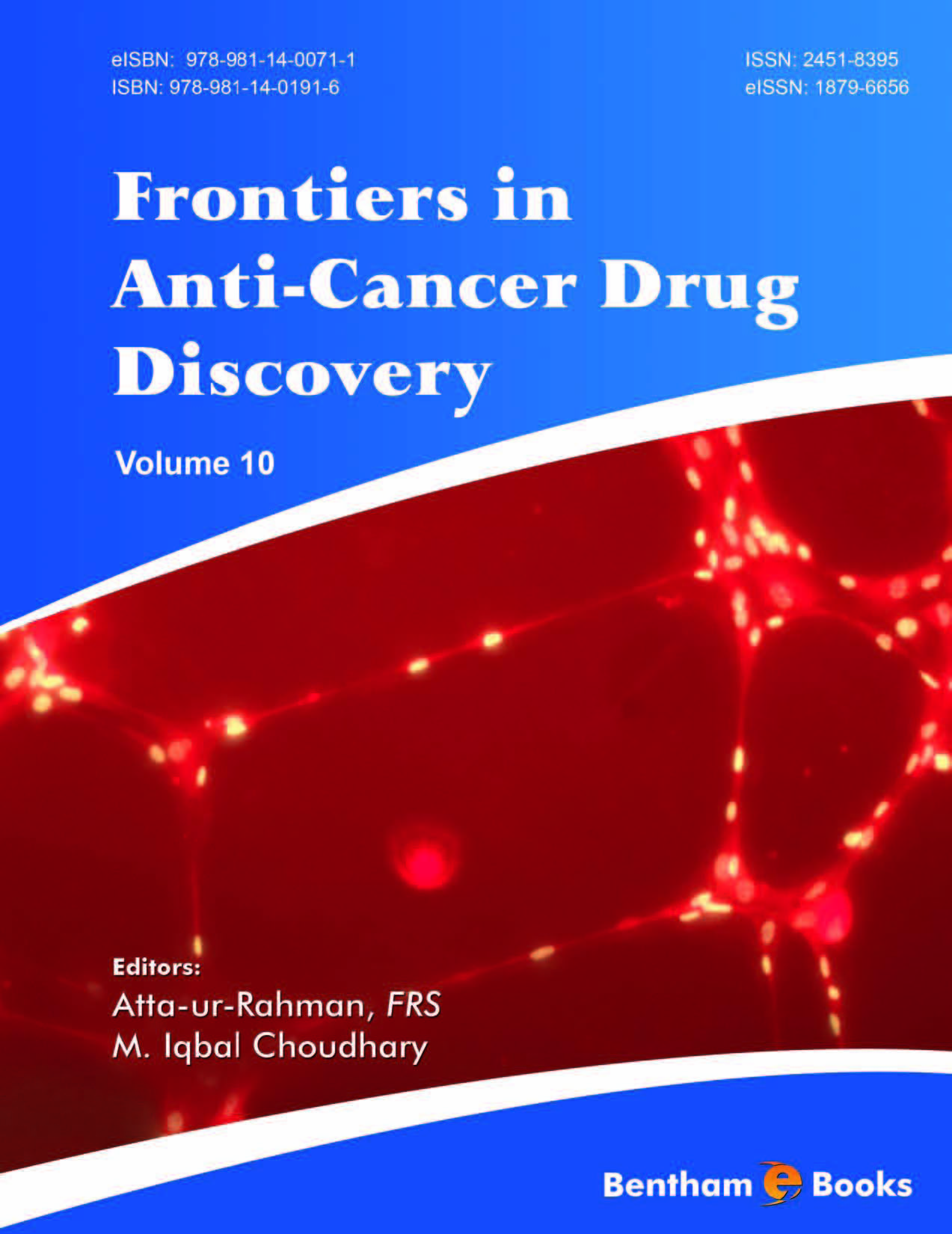Preface
Cancers are among the most fearful human diseases. This has attracted the attention of scientists, policy makers, media, and general publica alike. There are dozens of different types of cancers, with complex etiologies, heterogenicities and complex risk factors. This makes the treatment of cancer a major challenge. Recent advances in the field of anti-cancer drug discovery and development is largely based on a better understanding of cancer biology and molecular genetics. This book series entitled, “Frontiers in Anti-Cancer Drug Discovery” is regularly publishing excellent articles in this field and has gained reputation of being thorough, up-to-date and inclusive.
The present 10th volume contains seven excellent chapters focusing on various aspects of cancer biology, and advances in anti-cancer drug development. Ziogas and Tsoulfas have focused their article on general characteristics of hepatoblastoma, the third most common pediatrics tumor of the abdomen. They have reviewed various treatment options in different stages of the disease. The review by Gangarapu et al., is focused on the importance of monocarboxylate transporters (MCT) as a novel anti-cancer drug target. They summarize the recent developments in the field of MCT inhibitors, a new class of drugs against various cancers.
Biological screenings play an important role in initial drug discovery process. For pre-clinical anticancer drug lead discovery, a large number of in vitro cell-based anti-proliferative assays have been developed which are critically reviewed in the next chapter by Ediriweera et al. The nexus between diet and the onset of malignancies is the central theme of the article by Rajendran et al., They have reviewed the anticancer effects of major polyphenolic compounds found in common foods, in the context of their molecular mechanisms. Glioblastoma multiforme (GBM) is an aggressive lethal form of brain tumor, with poor prognosis. The chapter Review of Gabrani et al., is focused on recent development of synergistic combinations various classes of drugs with temozolomide, which provide substantial survival advantages to GBM patients. The central theme of the last two reviews is recent developments of anti-cancer drug delivery systems by using nanocarriers. Mendez-Rojas et al have reviewed recent progress on the development of mesoporous nanocarriers as efficient systems for controlled transport and delivery of various anti-cancer drugs, whereas the last review by Saraf et al., mainly deals with the active targeting of anti-breast cancer drugs by using various kinds of nanomaterials, and the challenges faced in these processes.
We are grateful to all contributors for their excellent scholarly contributions, and for the timely submissions of their reviews. We would like to express our gratitude to the excellent coordination of Ms. Fariya Zulfiqar (Manager Publications), Mr. Shehzad Naqvi (Editorial Manager Publications) and Mr. Mahmood Alam (Director Publications) of Bentham Science Publishers for the timely completion of the volume in hand. We sincerely hope that the efforts of the authors and the production team will help readers in a better understanding of the subject and motivate them to conduct further good quality research.
Atta-ur-Rahman, FRS
Kings College
University of Cambridge
UK
&
M. Iqbal Choudhary
H.E.J. Research Institute of Chemistry
International Center for Chemical and Biological Sciences
University of Karachi
Karachi
Pakistan

